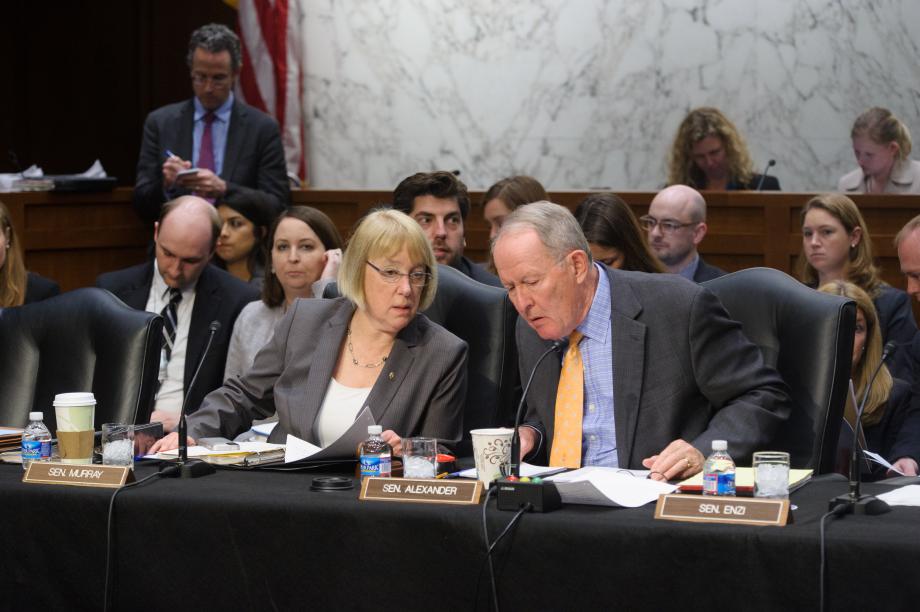
In a rare example of legislating and bipartisanship, the HELP Committee unanimously passed its rewrite of the Elementary and Secondary Education reauthorization bill this afternoon. The bill, called Every Child Succeeds, includes historically toxic education topics like testing and school performance ratings. The bill has been so toxic that the last three Congresses have tried and failed to rewrite it. The House had to pull the measure from the House Floor earlier this year after full consideration because of lack of support for final passage.
In contrast, the bipartisan legislation, cowritten by Chairman Alexander and Ranking Member Murray, figuratively flew through the committee. It was unveiled last week and considered Wednesday and Thursday of this week.
In contrast, the 2013 consideration of legislation to reauthorize these programs, with a committee largely comprised of the same group of Senators, was mired in partisan gridlock, dozens of amendments and two long days of fighting. What ultimately passed on June 12, 2013 was by a party-line vote of 12-10. All Democrats on the committee approved the bill and all Republicans opposed it.
Conversely, today, every member of the committee, Republican and Democrat, including the polarizing Sens. Rand Paul (R-KY), Tim Scott (R-NC), Al Franken (D-MN) and Elizabeth Warren (D-MA), all lined up their support behind the committee chairs and the legislation. The overall tone to the whole process between Chairman Alexander and Ranking Member Murray has been one of cooperation and compromise.
Senator Alexander hopes the Senate] can take up the measure before the Memorial Day recess.
While passing the Senate seems all but assured, the Senate version is vastly different than the House measure. What, if anything, will pass the House remains to be seen.
More information about the Every Child Succeeds can be found here.
To watch the markup, click here.
The Office of Federal Relations will continue to monitor this bill and report on it’s progress.
